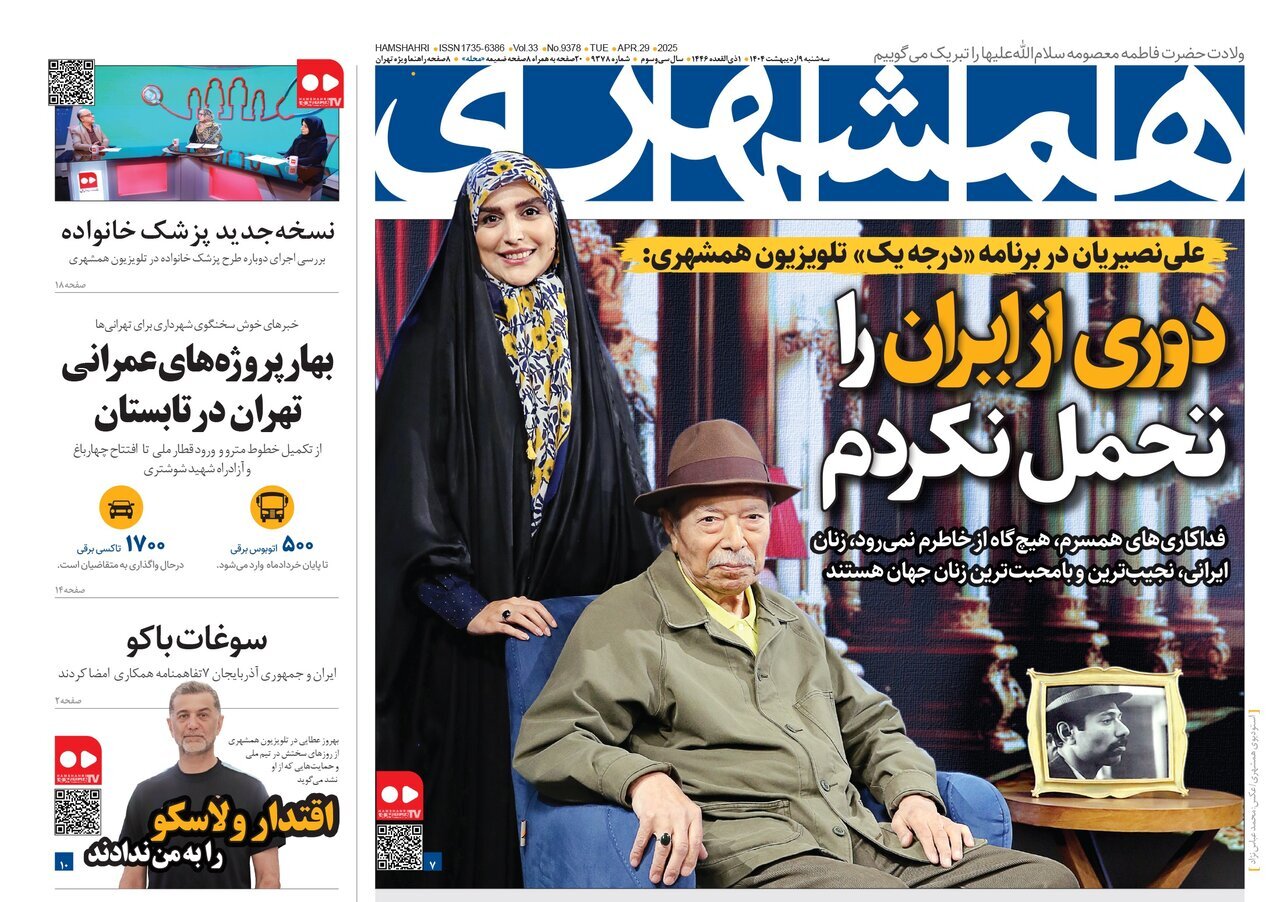Prospects of Tehran-Baku relations

TEHRAN - Hamshahri discussed the meeting of the presidents of Iran and Azerbaijan in Baku in an interview with Mehdi Khorsand, an expert on Eurasian issues.
He said: Today, we are witnessing a foreign interventionist actor in the name of the Zionist regime in the relations between Tehran and Baku. However, the issue of ethnicity could be a factor in reconciliation between Iran and the Republic of Azerbaijan. Religious commonalities can pave the way for broader cooperation. The existence of ethnic and religious commonalities has caused Iran to adopt a tolerant approach to some of Baku's unconstructive behaviors. Tehran's approach towards Baku should stay on this path. We must accept that bilateral relations are currently at a low level and we must move towards multiplying the level of economic and trade exchanges, especially by utilizing border capacities. Moreover, by completing the North-South Corridor, transit cooperation between the two sides can be increased in the areas of cargo and passenger traffic. By increasing economic cooperation in various sectors, common concerns can be minimized and the destructive role of interventionist actors can be prevented.
Donya-e-Eqtesad: Deterrence through diplomacy
Donya-e-Eqtesad devoted its editorial to the strategic dimensions of the Islamic Republic of Iran’s decision to begin negotiations with the United States and wrote: In the security environment of the Middle East, being watchful of threats is a key element in deterrence. The rapid implementation of Operations True Promise I and II enhanced the credibility of the Islamic Republic of Iran’s deterrence in the strategic memory of the region. The Islamic Republic of Iran showed that, with the logic of deterrence and with the goal of peace and stability, it does not hesitate to carry out military operations and, after adjusting the conditions for dialogue, it takes firm and decisive steps on the diplomatic path. By conducting military operations last year, demonstrating military preparedness, holding regional diplomatic meetings, and clearly explaining principled policies regarding the appropriate commitment to regional and international peace, the Islamic Republic of Iran has proven the credibility of its messages and paved the way for reaching an agreement (on its nuclear program).
Javan: We will powerfully neutralize the illusion of sabotage in negotiations
In an analysis, Javan addressed Netanyahu's ridiculous rhetoric and said: Amid the positions on the prospect of indirect nuclear negotiations between Iran and the United States, Netanyahu claimed that Tel Aviv would only agree to an agreement that would eliminate Iran's capacity to enrich uranium. Netanyahu's impudence is remarkable as he wants to dictate to President Trump what he can or cannot do in his diplomacy with Iran. Netanyahu speaks against the negotiations in a situation in which U.S. President Donald Trump himself openly or implicitly expresses optimism about the negotiations. Esmaeil Baghaei, the Foreign Ministry spokesman, says the Zionist regime's officials are trying to make such statements with two goals: one, to cast a shadow over the genocide taking place in occupied Palestine, and second, to destroy any diplomatic process in the region. They certainly know better than anyone that any adventurism and wrong action against Iran will be met with a crushing response.
Etemad: Constructive relations with the northern neighbor
Relations between Iran and the Republic of Azerbaijan are multifaceted as they include historical, political, economic, and trade dimensions. In the political arena, cooperation and tensions have always been a part of Iran-Azerbaijan relations. On one hand, both countries share common interests in maintaining regional stability and combating separatism, but on the other, geopolitical rivalries have made their interactions complicated. Constructive interactions, before creating problems in economic, commercial, and technological interests, can enhance the multiple dimensions of the two countries' interests and enhance the geopolitical and geoeconomic security of Iran and the Republic of Azerbaijan in the South Caucasus. In these new conditions, this useful factor should be given special attention from a professional and technical point of view by the policymakers of the two countries, because the great powers and regional rivals can, as in the past, cause serious disturbances in the relations between the two countries. Specifically, the failure to complete the multiple diplomatic relations between Tehran and Baku will be a factor that creates anarchy in the South Caucasus, and this is a desirable factor for the West and Iran's rivals in the South Caucasus.
Leave a Comment